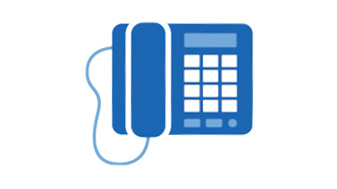The 100,000 Genomes Project
The 100,000 Genomes Project was set up for NHS patients who have certain rare diseases and their families and for NHS patients with some kinds of cancer. Run by Genomics England, the Project involved whole genome sequencing to identify causes, treatments and diagnostic tools for different diseases. The Project aimed to facilitate research to further our understanding of health and disease, and how to best implement genomics into healthcare. Patients were invited to take part by their hospital doctor or healthcare professional.
The 100,000 Genomes Project enrolment has now closed to all patients
These pages provide information about the project for both clinicians and participants who took part in the 100,000 Genome Project through two of the thirteen Genomic Medicine Centres set up by NHS England. The South West Genomic Medicine Centre and the West of England Genomic Medicine Centre. Please use the contacts provided below for any queries related to the project.
Latest Update
- Referrals to the Rare Disease arm of the project ceased on 31st August 2018 and to the Cancer arm of the project on 31st December 2018.
- All ‘Main Findings’ have been returned to clinical teams. These are the results relating to the patient’s rare disease or cancer. It is the responsibility of the clinical team to share these findings with their patient and where appropriate, the patient’s family.
- All ‘Additional Findings and Reproductive Findings’ have been released and are being returned via the SouthWest Laboratory Hub, both the Bristol and the SouthWest Peninsular Clinical Genetics Services and by the Bristol Familial Hypercholesterolemia service. These are the ‘looked for’ findings which may not relate to the patient’s condition and which were also available to members of the patient’s family who took part in the 100,000 Genomes Project.
- Individuals who took part when they were 15 or under will be contacted by a member of the team once they turn 16 to ask if they would now like to be enrolled as an adult
- Please note genetic testing for rare disorders and cancers continues to be available through the NHS regional genomic laboratory network
Main Findings
These are findings which are looked for because they are relevant to the condition or disease for which the patient joined the project. These findings are changes, or variants, in a person’s genomic sequence. The changes could be relevant to the explanation, diagnosis or treatment of a person’s rare disease or cancer.
There are two types of report issued by the South West and West of England Genomic Medicine Centres for Main Findings:
- ‘No findings’ letter—this will explain that on this occasion, an analysis of the data has not found a genetic cause for the patient’s condition
- Genomics report -This will explain the findings from any analysis where it is believed that they could be relevant to the patient’s clinical presentation
Main Findings will be returned to the clinician who referred the patient or family to the project
Additional Findings
All participants in the 100,000 Genomes Project were given the option to have their genome looked at for a small number of gene changes not related to the reason they took part in the project. These ‘looked for’ gene changes have been recognised to benefit patient care by enabling the participant to benefit from an early screening program or other health intervention. There are only a small number of currently ‘looked for’ genes but the list can change over time. The list of ‘additional findings’ will change over time, and the latest list can be found on the Genomics England website.
There are two types of report issued by the South West Genomics Laboratory Hub
- ‘Additional Findings Negative Findings Letter’ This will explain that we have not found any gene changes which may increase the likelihood of developing the health conditions listed at the time your Additional Findings testing was completed. This letter will be returned directly to the participant.
- Genomics report - This will explain the findings from any analysis of gene changes as included on the list at time of testing, and where it is believed the participant may benefit from an early screening program or other health intervention. This report is issued to the relevant clinical service who will be able to offer an appropriate appointment to the participant
Carrier Testing or Reproductive Findings
Participants in the 100,000 Genomes Project were given the option to agree to have their genome looked at for gene changes, not related to the reason they had come into the project but which could affect future children. If someone has such a change, they are said to be a ‘carrier’ and it is unlikely to affect their own health. Not all participants will be able to receive carrier findings; for some conditions, results will only be looked for if both members of a couple are taking part in the project.
The list of carrier findings will change over time and the latest list can be found on the Genomics England website.
Help and Support
- If you are concerned that you have been consented on to the project but have not received your main findings result, you can check the status of your sequencing by visiting Genomics Englands' trackmysample tool and by contacting the clinical team who referred you into the project.
- If you no longer wish to take part in the 100,000 Genomes Project, you can find information on how to withdraw from it.
- If you are now over 16 but took part before your 16th birthday and would like to tell us if you would still like to take part, please use the contact below to arrange a time to talk through what happens next.
- If you have any questions about taking part or your result, please contact your clinical team or GMC team as shown below

